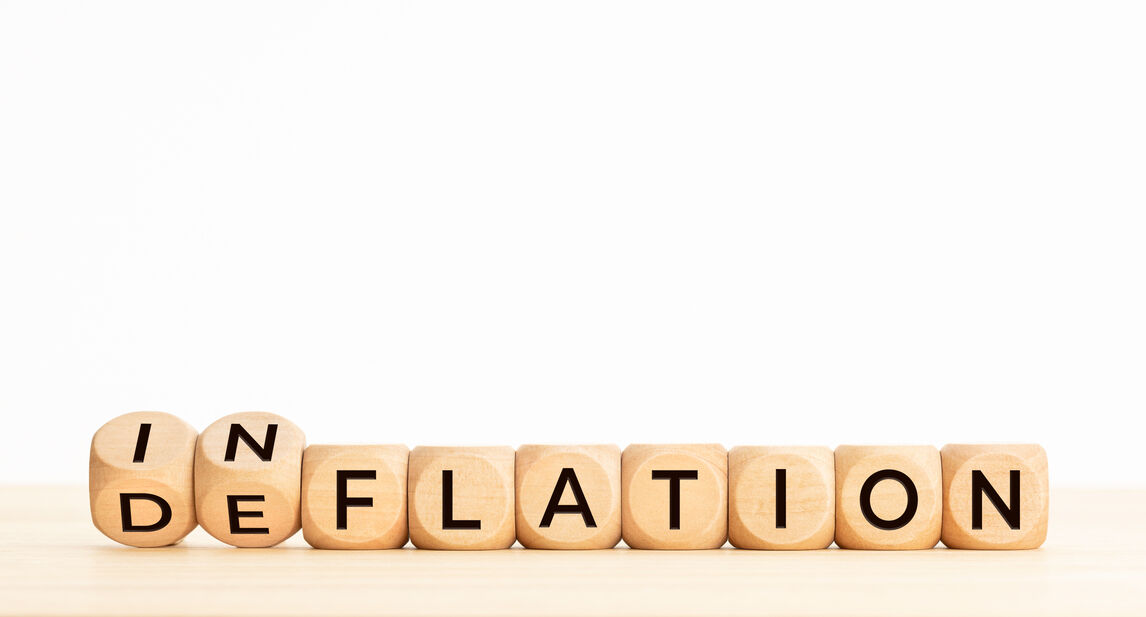Simplifying Life Insurance in India
What are the Differences Between Inflation and Deflation

In macroeconomics, we consider inflation and deflation, two pressing problems that practically every country in the world faces. When the cost of goods and services increases, the purchasing power of money declines, this is known as inflation. Deflation, on the other hand, is the opposite of inflation in that it causes a drop in the cost of products and services.
Beyond a certain point, inflation hurts every economy more than it helps. Similarly, deflation completely ruins a country’s economy. This guide is about the differences between inflation and deflation. Read on to know more about the same.
What Is Inflation?
Inflation is a condition that develops when there is fluctuation in the demand and supply of funds and results in an increase in the cost of goods and services over time. Because of the increase in the overall price level brought on by inflation, a nation's economy experiences a decline in the purchasing power of its currency. As a result, an average person will need to spend considerably more money to buy a few things.
The various forms of inflation are as follows:
- Cost-Pull Inflation
- Demand-Pill Inflation
- Built-In Inflation
In India, the Wholesale Price Index (WPI) and Consumer Price Index are used to measure inflation (CPI). Increases in government spending, widespread tax evasion, irregular agricultural growth, deficit financing, hoarding, black marketing etc., can all contribute to inflation.
What Is Deflation?
Deflation is a scenario where there is a reduction in the amount of credit and money available to the economy. Because deflation occurs when the inflation rate is less than 0%, this is also referred to as negative inflation.
The cost of products and services decreases and the purchasing power of money rises as a result. As a result, customers may now purchase more goods for a relatively small cost.
Deflation is of the following types:
- Credit Deflation
- Money Supply Side Deflation
- Debt Deflation
Customers delay their purchases and consumption in this way, which disrupts the entire economic cycle and causes the investment to sit idle. Deflation results in recession, a drop in profitability, depression, and other things.
What are the Key Differences Between Inflation and Deflation
The table below illustrates the primary differences between inflation and deflation:
|
Parameters |
Inflation |
Deflation |
|
Definition |
It is defined as a scenario where the price of goods and services increases in an economy. |
It is defined as a scenario swherethe price of goods and services decreases in an economy. |
|
Effect on demand |
The demand for goods and services increases during inflation. |
The demand for goods and services decreases during inflation. |
|
Effect on national income |
National income does not get affected due to inflation. |
National income tends to drop due to deflation. |
|
Consequences |
Inflation causes an unequal distribution of income |
Deflation causes a significant rise in the unemployment level |
|
Benefits |
Inflation to a moderate level is good for an economy |
The decrease in prices of goods and services will help people to save more. |
|
Effect on the purchasing power of money |
Inflation reduces the purchasing power of money |
Deflation increases purchasing power of money |
FAQs About Inflation and Deflation
Why is inflation better than deflation?
Does deflation benefit anyone?
Is inflation good for India’s economy?
Other Important Articles Related to Inflation and Financial Planning
Important Articles About Financial Planing
Disclaimer
- This is an informative article provided on 'as is' basis for awareness purpose only and not intended as a professional advice. The content of the article is derived from various open sources across the Internet. Digit Life Insurance is not promoting or recommending any aspect in the article or its correctness. Please verify the information and your requirement before taking any decisions.
- All the figures reflected in the article are for illustrative purposes. The premium for Coverage that one buys depends on various factors including customer requirements, eligibility, age, demography, insurance provider, product, coverage amount, term and other factors
- Tax Benefits, if applicable depend on the Tax Regime opted by the individual and the applicable tax provision. Please consult your Tax consultant before making any decision.
Latest News
Read More
















